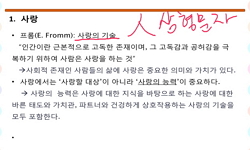The purpose of this study was to examine the differences of behavioral problems, social competence and self-esteem between ADHD with and without depressive symptom in child foster care center. The subjects were 82 middle, and high school students who ...
http://chineseinput.net/에서 pinyin(병음)방식으로 중국어를 변환할 수 있습니다.
변환된 중국어를 복사하여 사용하시면 됩니다.
- 中文 을 입력하시려면 zhongwen을 입력하시고 space를누르시면됩니다.
- 北京 을 입력하시려면 beijing을 입력하시고 space를 누르시면 됩니다.
ADHD 아동·청소년의 우울증상 동반여부에 따른 문제행동, 사회적 역량 및 자아존중감의 차이 : 아동복지시설 아동·청소년을 대상으로 = Differences of Behavioral Problem, Social Competence and Self-Esteem between ADHD with and without Depressive Symptom: Focused on Children and Adolescents in Child Foster Care Center
한글로보기https://www.riss.kr/link?id=T15020909
- 저자
-
발행사항
서울 : 숙명여자대학교 대학원, 2019
-
학위논문사항
학위논문(석사) -- 숙명여자대학교 대학원 , 아동복지학과 아동심리치료전공 , 2019. 2
-
발행연도
2019
-
작성언어
한국어
- 주제어
-
발행국(도시)
서울
-
형태사항
26 cm
-
일반주기명
지도교수: 하은혜
-
UCI식별코드
I804:11043-000000067968
- 소장기관
-
0
상세조회 -
0
다운로드
부가정보
다국어 초록 (Multilingual Abstract)
First, as a result of comparing the two groups based on K-CBCL 6-18, comorbid ADHD scored higher in Withdrawn/Depress ed, Somatic Complaints, Internalizing and Externalizing, Total Problem s, DSM-oriented Affective Problems and DSM-oriented Posttraumatic Stress Problems than the pure ADHD..
Second, comparing the social competence scores between comorb id and pure ADHD, the comorbid ADHD revealed lower score in social competence scale than the pure ADHD.
Third, comparing the self-esteem scores between comorbid and pure ADHD, the comorbid ADHD marked lower self-esteem score than the pure ADHD.
Thus, the result of this study suggested that comorbid ADHD with depressive symptom have severity in Withdrawn/Depressed, Som atic Complaints, Internalizing and Externalizing, Total Problems, DSM -oriented Affective Problems and DSM-oriented Posttraumatic Stress Problems. Also, the comorbid ADHD showed difficulty accommodating oneself as shown in low social competence score and self-esteem score compared to the pure ADHD.
The purpose of this study was to examine the differences of behavioral problems, social competence and self-esteem between ADHD with and without depressive symptom in child foster care center. The subjects were 82 middle, and high school students who participated in the "2013-2014 Child Welfare Project for Children's Treatment and Rehabilitation Support Project" and diagnosed with ADHD and depressive symptom. They were classified into two groups, pure ADHD and comorbid ADHD with depressive symptom. K-CBCL 6-18, Social Competence Scale, Self-Esteem Scale, Beck Depression Inventory and Children’s Depression Inventory were used as measuring tools for this study. The result were as follows.
First, as a result of comparing the two groups based on K-CBCL 6-18, comorbid ADHD scored higher in Withdrawn/Depress ed, Somatic Complaints, Internalizing and Externalizing, Total Problem s, DSM-oriented Affective Problems and DSM-oriented Posttraumatic Stress Problems than the pure ADHD..
Second, comparing the social competence scores between comorb id and pure ADHD, the comorbid ADHD revealed lower score in social competence scale than the pure ADHD.
Third, comparing the self-esteem scores between comorbid and pure ADHD, the comorbid ADHD marked lower self-esteem score than the pure ADHD.
Thus, the result of this study suggested that comorbid ADHD with depressive symptom have severity in Withdrawn/Depressed, Som atic Complaints, Internalizing and Externalizing, Total Problems, DSM -oriented Affective Problems and DSM-oriented Posttraumatic Stress Problems. Also, the comorbid ADHD showed difficulty accommodating oneself as shown in low social competence score and self-esteem score compared to the pure ADHD.
국문 초록 (Abstract)
첫째, 두 집단을 대상으로 K-CBCL 6-18 문제행동 차이를 비교한 결과 위축/우울, 신체증상, 내재화, 외현화, 문제행동총점, DSM 정서문제, 외상후스트레스 문제에서 공존 ADHD의 점수가 순수 ADHD에 비해 높았다.
둘째, 두 집단을 대상으로 사회적 역량의 차이를 비교한 결과 공존 ADHD의 사회적 역량이 순수 ADHD의 사회적 역량보다 더 낮았다.
셋째, 두 집단을 대상으로 자아존중감의 차이를 비교한 결과 공존 ADHD의 자아존중감이 순수 ADHD의 자아존중감보다 더 낮았다.
이와 같이 본 연구에서는 순수 ADHD에 비해 우울증상 공존 ADHD 집단이 위축/우울, 신체증상, 내재화, 외현화, 문제행동총점, DSM 정서문제, 외상후스트레스 등의 문제행동이 심각하고 사회적 역량 및 자아존중감의 수준이 더 낮아 적응이 더욱 어렵다는 것을 확인하였다.
본 연구에서는 아동복지시설 ADHD 아동·청소년의 우울증상 동반여부에 따른 문제행동, 사회적 역량 및 자아존중감의 차이를 비교하였다. 연구 대상은 ‘2013년-2014년에 실시된 아동복지시설 ...
본 연구에서는 아동복지시설 ADHD 아동·청소년의 우울증상 동반여부에 따른 문제행동, 사회적 역량 및 자아존중감의 차이를 비교하였다. 연구 대상은 ‘2013년-2014년에 실시된 아동복지시설 아동 치료·재활 지원 시범사업’에 참여하고 ADHD 진단을 받은 초·중등학생 82명으로, 이 중 우울장애 및 증상을 동반한 공존집단은 30명이었다. 평가도구는 K-CBC L 6-18, 사회적 역량 척도, 자아존중감 척도였다. ADHD만을 진단받은 순수 ADHD, ADHD와 우울장애를 동시에 진단받거나 우울증상이 높은 ADHD는 공존 ADHD로 분류한 후 두 집단 간 문제행동과 사회적 역량, 자아존중감을 비교한 결과는 다음과 같다.
첫째, 두 집단을 대상으로 K-CBCL 6-18 문제행동 차이를 비교한 결과 위축/우울, 신체증상, 내재화, 외현화, 문제행동총점, DSM 정서문제, 외상후스트레스 문제에서 공존 ADHD의 점수가 순수 ADHD에 비해 높았다.
둘째, 두 집단을 대상으로 사회적 역량의 차이를 비교한 결과 공존 ADHD의 사회적 역량이 순수 ADHD의 사회적 역량보다 더 낮았다.
셋째, 두 집단을 대상으로 자아존중감의 차이를 비교한 결과 공존 ADHD의 자아존중감이 순수 ADHD의 자아존중감보다 더 낮았다.
이와 같이 본 연구에서는 순수 ADHD에 비해 우울증상 공존 ADHD 집단이 위축/우울, 신체증상, 내재화, 외현화, 문제행동총점, DSM 정서문제, 외상후스트레스 등의 문제행동이 심각하고 사회적 역량 및 자아존중감의 수준이 더 낮아 적응이 더욱 어렵다는 것을 확인하였다.
목차 (Table of Contents)
- Ⅰ. 서론 = 1
- 1. 연구의 필요성 및 목적 = 1
- 2. 연구문제 = 11
- Ⅱ. 연구방법 = 12
- 1. 연구대상 = 12
- Ⅰ. 서론 = 1
- 1. 연구의 필요성 및 목적 = 1
- 2. 연구문제 = 11
- Ⅱ. 연구방법 = 12
- 1. 연구대상 = 12
- 2. 연구도구 = 14
- 1) 한국판 아동·청소년 행동평가척도 부모용(K-CBCL 6-18) = 14
- 2) 사회적 역량 = 15
- 3) 자아존중감 척도(Self-Esteem Scale: SES) = 15
- 4) 소아 우울 척도(Children’s Depression Inventory: CDI) = 16
- 5) Beck 우울 척도(Beck Depression Inventory: BDI) = 16
- 3. 연구절차 = 17
- 4. 자료처리 및 분석 = 18
- Ⅲ. 연구결과 = 19
- 1. 순수 ADHD와 공존 ADHD의 문제행동 차이 = 19
- 2. 순수 ADHD와 공존 ADHD의 사회적 역량 차이 = 21
- 3. 순수 ADHD와 공존 ADHD의 자아존중감 차이 = 21
- Ⅳ. 논의 = 23
- 1. 논의 및 결론 = 23
- 2. 연구의 제한점 및 제언 = 29
- 참고문헌 = 30
- 부록 = 40
- ABSTRACT = 50












